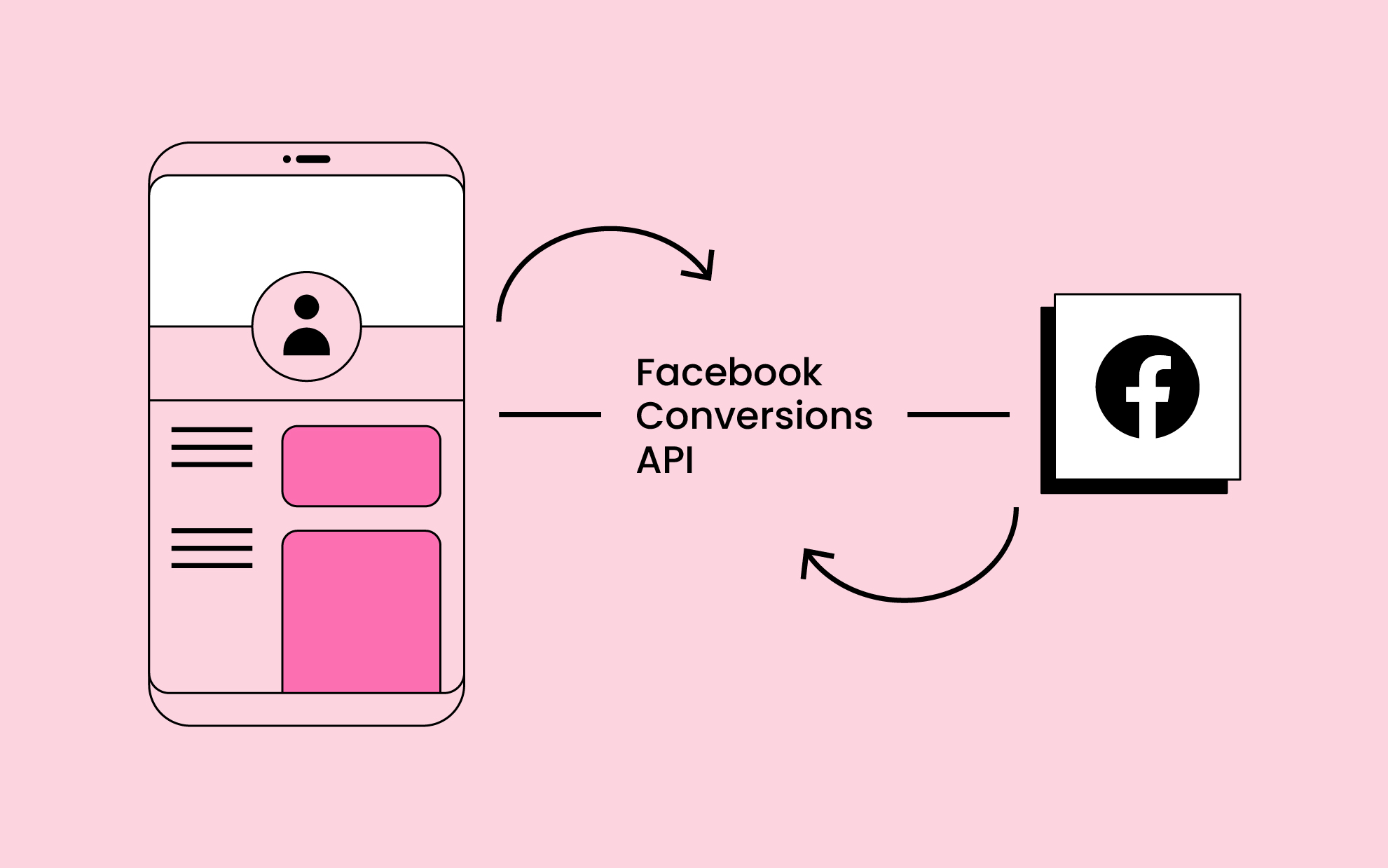By: Analhí Guadarrama and Karen Amicone
In this article we’ll try to explain what Facebook Conversions API is, and what are the benefits it could bring to your business.
What’s an API?
API stands for Application Programming Interface. To put it simply, it’s a software intermediary that allows two applications to communicate.
Think of an API as an interpreter between two people who don’t speak the same language.
APIs are used when two systems need to send and receive information between them. They use defined rules and protocols to determine how two computers, machines or applications connect with each other for a specific task.
A straightforward example would be when you sign into Facebook through their app on your phone. This app makes a call to an API to retrieve your account and credentials. Facebook then gathers this information from one of its servers and sends it back to the mobile app.
Facebook Conversions API
Conversions API allows company servers to connect directly with Facebook so that advertisers can then send data about events (user activity) to the advertising platform. It can send website events, data on activity in physical stores or any other type of conversions located in the advertiser’s server, outside of Facebook. All of this data is linked to a Pixel and processed as a browser event, so it can be used as a Pixel for tracking, creating reports, optimizing campaigns and targeting campaigns by generating or excluding audiences.
The communication between the server and Facebook stops cookie disablers and browser-related problems like bad connection or loading issues from getting in the way, so we can still obtain events and user data. The goal is to guarantee that changes in the industry don’t disturb data-driven marketing, while still respecting the privacy of users and companies.
The importance of Facebook API Conversions in digital marketing
Conversions API is a significant feature in the present and the future of digital marketing.
Disabling cookies is becoming more and more common, which makes this tool more relevant everyday. The Pixel works with cookies, so its effectiveness has been affected. As of today, the best tactic according to Facebook is having both tools running in our systems so they can complement each other.
If the Pixel fails for any of the reasons above, using Conversions API helps make sure we’re still keeping track of events (user activity). This way we can achieve more precise data, which we’ll use with Facebook’s marketing tools to generate broader audiences, more conversions to target campaigns, options for optimization and more accurate tracking to help make better decisions.
This tool also works with events (user activity) that occur outside of the website, like leads obtained at a call center. Having a “full-funnel” view like this on the user journey from online to offline or vice versa, or any other available combination, can be very helpful for improving our audience.
If we look at the future, in less than two years all main web browsers (Google Chrome, Firefox, Safari) will have blocked all third-party cookies (Deloitte, 2020). That makes today a great time to start Conversions API for our event tracking strategy.
How can your business benefit from this?
More precise data and user tracking can help us reach a broader audience, personalize our communication with them, optimize campaigns and achieve better metrics, which translates into a high increase in conversions and cost cuts. We can see in Clip’s case study that they achieved 46% more conversions and a 32% reduction in cost per conversion after starting to use both Conversions API and the Pixel.
In conclusion, using Conversions API today is not only beneficial in terms of costs and conversions, but it also prepares us for the cookieless future of digital marketing.
Sources
- Davids, 2019.What is An API and How Does It Work?.
- Online: https://bit.ly/3aDOXHQ
- Información sobre la API de atribución de Facebook. Online (in Spanish): https://bit.ly/3aCvreV
- Clip: Increased Campaign Impact by Combining the Conversions API with the Facebook Pixel. Online: https://bit.ly/3aAzSac
Deloitte, 2020. How the cookie crumbled: Marketing in a cookie-less world. Online: https://bit.ly/3dJnuXl

